Filter by
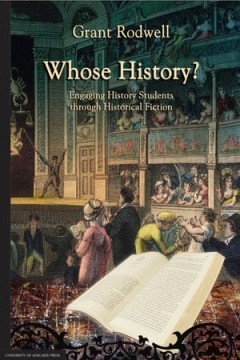
Whose History? : Engaging History Students through Historical Fiction
Whose History? aims to illustrate how historical novels and their related genres may be used as an engaging teacher/learning strategy for student teachers in pre-service teacher education courses. It does not argue all teaching of History curriculum in pre-service units should be based on the use of historical novels as a stimulus, nor does it argue for a particular percentage of the use of his…
- Edition
- -
- ISBN/ISSN
- 9781922064509
- Collation
- 280 halaman
- Series Title
- -
- Call Number
- 800 ROD w
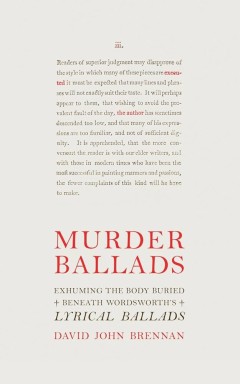
Murder Ballads : Exhuming The Body Buried Beneath Wordsworth's Lyrical Ballads
In 1798, William Wordsworth and Samuel Taylor Coleridge were engaged in a top secret experiment. This was not, as many assume, the creation of a book of poetry. A book emerged, to be sure—the landmark Lyrical Ballads. But in Murder Ballads, David John Brennan posits that the two poets were in fact pursuing far different ends: to birth from their poems a singular, idealized Poet. Despite their…
- Edition
- -
- ISBN/ISSN
- 9780692734629
- Collation
- 160 halaman
- Series Title
- -
- Call Number
- 800 BRE m
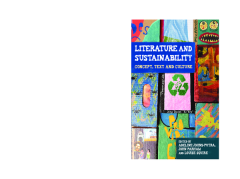
Literature and Sustainability : Exploratory Essays
Sustainability has become a key socio-political issue over recent years. However, whilst the literary-critical community has advanced enthusiastically on an exciting range of environmentally-based analyses (most obviously through the work of ecocriticism), its response specifically to sustainability—as an attempt to reconceptualise the way we live, as an idea with a particular history, a…
- Edition
- -
- ISBN/ISSN
- 9780719099670
- Collation
- -
- Series Title
- -
- Call Number
- 800 JOH l
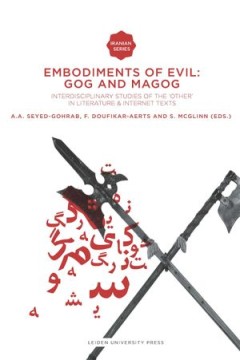
Embodiments of Evil : Gog and Magog : interdisciplinary Studies of The "Other…
Gog and Magog, as archetypes of evil, have dwelt in our consciousness since their threatening appearance in the Bible and Quran. Maps, literature and texts ranging from Medieval Europe, the Byzantine and Arab world, in Berber, Persian and Indonesian traditions, to contemporary internet texts: all use these imaginary monstrous creatures. The figures are constantly reinterpreted as the enemies of…
- Edition
- -
- ISBN/ISSN
- 9789087280901
- Collation
- -
- Series Title
- -
- Call Number
- 800 SEY e
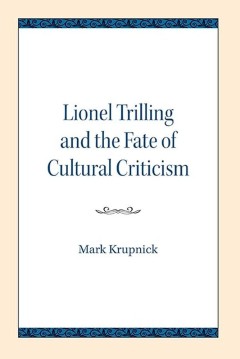
Lionel Trilling and the Fate of Cultural Criticism
Lionel Trilling was one of the twentieth century’s most widely read and influential American literary critics. Mark Krupnick traces Trilling’s career from the 1920s through the 1970s, following the shifting intellectual and ideological currents in his thought. Krupnick places Trilling’s criticism and fiction in the context of his New York intellectual group, illuminating the connection be…
- Edition
- -
- ISBN/ISSN
- 9780810139442
- Collation
- 216 halaman
- Series Title
- -
- Call Number
- 800 KRU l
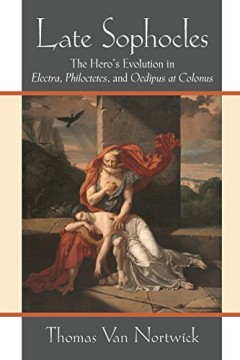
Late Sophocles : The Hero's Evolution in Electra, Philoctetes, and Oedipus at…
Only a few plays by Sophocles—one of the great tragic playwrights from Classical Athens—have survived, and each of them dramatizes events from the rich store of myths that framed literature and art. Sophocles' treatment evokes issues that were vividly contemporary for Athenian audiences of the Periclean age: How could the Athenians incorporate older, aristocratic ideas about human…
- Edition
- -
- ISBN/ISSN
- 9780472119561
- Collation
- 160 halaman
- Series Title
- -
- Call Number
- 800 VAN l
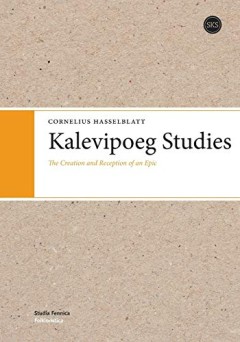
Kalevipoeg Studies : The Creation and Reception of An Epic
"The poem Kalevipoeg, over 19,000 lines in length, was composed by Friedrich Reinhold Kreutzwald (1803–1882) on the basis on folklore material. It was published in an Estonian-German bilingual edition in six instalments between 1857 and 1861; it went on to become the Estonian national epic. This first English-language monograph on the Kalevipoeg sheds light on various aspects of the emergence…
- Edition
- -
- ISBN/ISSN
- 9789522227119
- Collation
- 148 halaman
- Series Title
- -
- Call Number
- 800 HAS k
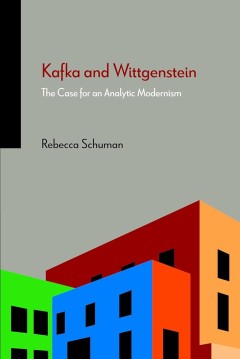
Kafka and Wittgenstein : The Case for an Analytic Modernism
In Kafka and Wittgenstein, Rebecca Schuman undertakes the first ever book-length scholarly examination of Ludwig Wittgenstein’s philosophy of language alongside Franz Kafka’s prose fiction. In groundbreaking readings, she argues that although many readers of Kafka are searching for what his texts mean, in this search we are sorely mistaken. Instead, the problems and illusions we portend to …
- Edition
- -
- ISBN/ISSN
- 9780810131507
- Collation
- 272 halaman
- Series Title
- -
- Call Number
- 800 SCH k

Literary Impressionisms : Resonances of Impressionism in Swedish and Finland-…
This book aims to locate and draw out resonances of impressionism in Swedish and Finland-Swedish prose at the end of the nineteenth century, a field hitherto overlooked in the critical debate on literary impressionism. In order to frame the many alternative approaches to this issue, it examines the use of the term ‘literary impressionism’ not only on the Scandinavian scene but also in an in…
- Edition
- -
- ISBN/ISSN
- 9788867057245
- Collation
- -
- Series Title
- -
- Call Number
- 800 STO l
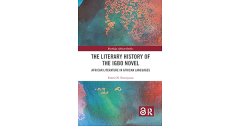
The Literary History of the Igbo Novel : African Literature in African Languages
This book looks at the trends in the development of the Igbo novel from its antecedents in oral performance, through the emergence of the first published novel, Omenuko, in 1933 by Pita Nwana, to the contemporary Igbo novel. Defining "Igbo literature" as literature in Igbo language, and "Igbo novel" as a novel written in Igbo language, the author argues that oral and written literature in Afric…
- Edition
- -
- ISBN/ISSN
- 9780367369613
- Collation
- 160 halaman
- Series Title
- -
- Call Number
- 800 EME l
 Computer Science, Information & General Works
Computer Science, Information & General Works  Philosophy & Psychology
Philosophy & Psychology  Religion
Religion  Social Sciences
Social Sciences  Language
Language  Pure Science
Pure Science  Applied Sciences
Applied Sciences  Art & Recreation
Art & Recreation  Literature
Literature  History & Geography
History & Geography